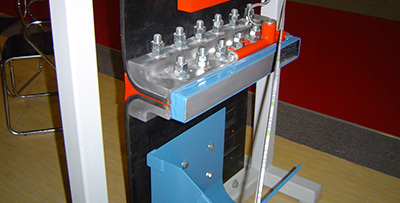News Center
Hezi technology focuses on the research and development of "rapid seamless conveyor belt joint sleeve" innovative technology project

NEWS CENTER

News Details
Understanding Quality Conveyor Belt Fasteners for Enhanced Operational Efficiency
Release time:
2025-06-22
In the chemical and rubber industry, conveyor belts are essential components in the transportation of materials. The efficiency and reliability of these systems significantly depend on various factors, one of which is the quality of conveyor belt fasteners. These fasteners play a critical role in ensuring that conveyor belts remain intact and function optimally. Quality conveyor belt fasteners are
In the chemical and rubber industry, conveyor belts are essential components in the transportation of materials. The efficiency and reliability of these systems significantly depend on various factors, one of which is the quality of conveyor belt fasteners. These fasteners play a critical role in ensuring that conveyor belts remain intact and function optimally.
Quality conveyor belt fasteners are designed to provide secure and durable connections between belt ends. They come in various types, including mechanical fasteners and vulcanized splices. Mechanical fasteners are typically easier to install and can be adjusted if necessary, making them favorable in many operational settings. On the other hand, vulcanized splices offer a seamless joint, which can enhance the belt's overall performance and longevity.
The material composition of conveyor belt fasteners is another critical aspect to consider. They should be made from high-quality materials that can withstand the harsh environments often found in chemical processing and rubber manufacturing. This includes resistance to chemicals, temperature fluctuations, and physical wear and tear. When selecting fasteners, it is essential to ensure they are compatible with the specific type of conveyor belt and the materials being transported.
Investing in quality conveyor belt fasteners can lead to significant benefits. High-quality fasteners help reduce the risk of belt breakdowns, which can lead to costly downtime in production processes. Regular maintenance and the use of reliable fasteners can minimize the occurrence of issues that affect conveyor belt performance. Moreover, efficient belt connections contribute to smoother material handling, enhancing overall operational productivity.
To further improve the performance and lifespan of conveyor systems, it is recommended to conduct regular inspections and maintenance of conveyor belt fasteners. This not only ensures that they are functioning properly but also helps identify any potential issues before they escalate into larger problems.
In conclusion, quality conveyor belt fasteners are indispensable in the rubber and chemical industry. They not only secure the integrity of conveyor belts but also play a vital role in maintaining operational efficiency. Understanding the different types and material considerations can aid in selecting the right fasteners for specific applications, ultimately contributing to smoother operations and enhanced productivity.
Quality conveyor belt fasteners are designed to provide secure and durable connections between belt ends. They come in various types, including mechanical fasteners and vulcanized splices. Mechanical fasteners are typically easier to install and can be adjusted if necessary, making them favorable in many operational settings. On the other hand, vulcanized splices offer a seamless joint, which can enhance the belt's overall performance and longevity.
The material composition of conveyor belt fasteners is another critical aspect to consider. They should be made from high-quality materials that can withstand the harsh environments often found in chemical processing and rubber manufacturing. This includes resistance to chemicals, temperature fluctuations, and physical wear and tear. When selecting fasteners, it is essential to ensure they are compatible with the specific type of conveyor belt and the materials being transported.
Investing in quality conveyor belt fasteners can lead to significant benefits. High-quality fasteners help reduce the risk of belt breakdowns, which can lead to costly downtime in production processes. Regular maintenance and the use of reliable fasteners can minimize the occurrence of issues that affect conveyor belt performance. Moreover, efficient belt connections contribute to smoother material handling, enhancing overall operational productivity.
To further improve the performance and lifespan of conveyor systems, it is recommended to conduct regular inspections and maintenance of conveyor belt fasteners. This not only ensures that they are functioning properly but also helps identify any potential issues before they escalate into larger problems.
In conclusion, quality conveyor belt fasteners are indispensable in the rubber and chemical industry. They not only secure the integrity of conveyor belts but also play a vital role in maintaining operational efficiency. Understanding the different types and material considerations can aid in selecting the right fasteners for specific applications, ultimately contributing to smoother operations and enhanced productivity.
Previous Page
Previous Page

Recommend News





























